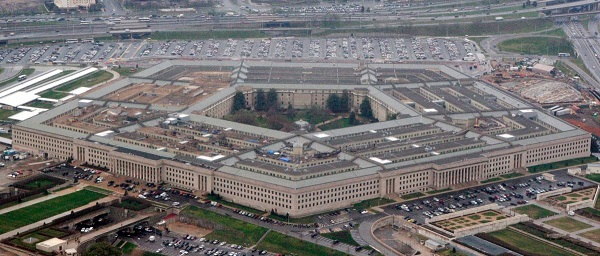Pentagon launches first cyber operation
October 25, 2018 | Expert Insights

U.S. Cyber Command has begun targeting Russian operatives, warning them that the military is tracking their activities in an attempt to deter them from disrupting the fast-approaching midterm elections.
Background
A cyber threat is deemed any malicious act that attempts to gain access to a computer network without authorization or permission from the owners. In 2017, there were multiple cyber threats that manifested into a large-scale attack on systems worldwide. The WannaCry attack alone ended up affecting hundreds of systems across the world including hospitals and large organizations. Internet connectivity brings great benefit but is also exploited by those wishing to cause harm.
Nation states also develop cyber capabilities that can be weaponized. Countries like Russia and North Korea have been linked to cyber breaches of other nations. Cyber warfare has become a legitimate force to be reckoned with as a cyber-attack can destabilize important structures vital to a nation.
Analysis
U.S. Cyber Command has begun targeting Russian operatives, warning them that the military is tracking their activities in an attempt to deter them from disrupting the fast-approaching midterm elections, according to defence officials.
Under the recently signed National Security Presidential Memorandum 13, the Cybercom operation was authorized without having to go through layers of approvals from other government agencies, which would have been the case in the past.
Begun in recent days, the operation is the first under a new presidential order easing restriction on offensive cyberspace actions against foreign networks and represents Cyber Command’s initial foray into safeguarding U.S. elections, officials said.
The news comes as President Trump’s national security adviser, John Bolton, warned officials in Moscow this week that he considered Russian interference in the American election process “intolerable.”
The digital alerts, which could take the form of text or direct messages, pop-ups or emails, are implicit warnings meant to stay below the level of an armed attack, so as not to provoke the Russians into counterattacking, officials said. Their targets include military hackers and “trolls” financed by Russian oligarchs.
“The U.S. government leadership has made it clear that it will not accept any foreign interference or attempts to undermine or manipulate our elections in any way,” Cybercom spokesman Joseph Holstead said, while declining to confirm the operation. “This includes the whole-of-government effort to protect election infrastructure and prevent malign, covert election influence operations.”
In recent months, the U.S. government has obtained indictments against and imposed sanctions on Russian operators who sought to undermine the U.S. political system. The targets include officers with Russia’s military spy agency, the GRU, and individuals working for the Russia-based Internet Research Agency, a troll farm financed by an oligarch close to President Vladimir Putin.
The initiative also reflects the Defence Department’s commitment to helping the Department of Homeland Security protect American elections, officials said.
Counterpoint
It is not clear how effective a deterrent such warnings will be against Russian operatives viz a viz those who may have targeted U.S. political discourse and ran disinformation campaigns that might have tipped the elections in favour of Donald Trump.
Additionally, as cyberspace is impossible to regulate without impinging on privacy concerns of the general public, the Pentagon’s operations have to be focused and limited. Russian efforts to sway public opinion by spreading false information have continued, and officials have said those efforts are becoming more refined, targeting specific groups of Americans. Almost all of the Russian disinformation efforts, according to current and former officials, are aimed at sowing dissent, polarizing the political parties and setting the stage for the 2020 presidential election. It is therefore extremely difficult for the Pentagon to precisely identify the target group and prevent an attack effectively.
Assessment
Our assessment is that the Pentagon’s new efforts come at the heels of Facebook’s new “war room” to fight the spread of disinformation before the upcoming mid-term elections in November. We believe that the Pentagon can no longer rely on tech companies like Google and Facebook to defend against troll attacks and fake news.
Read more:








Comments